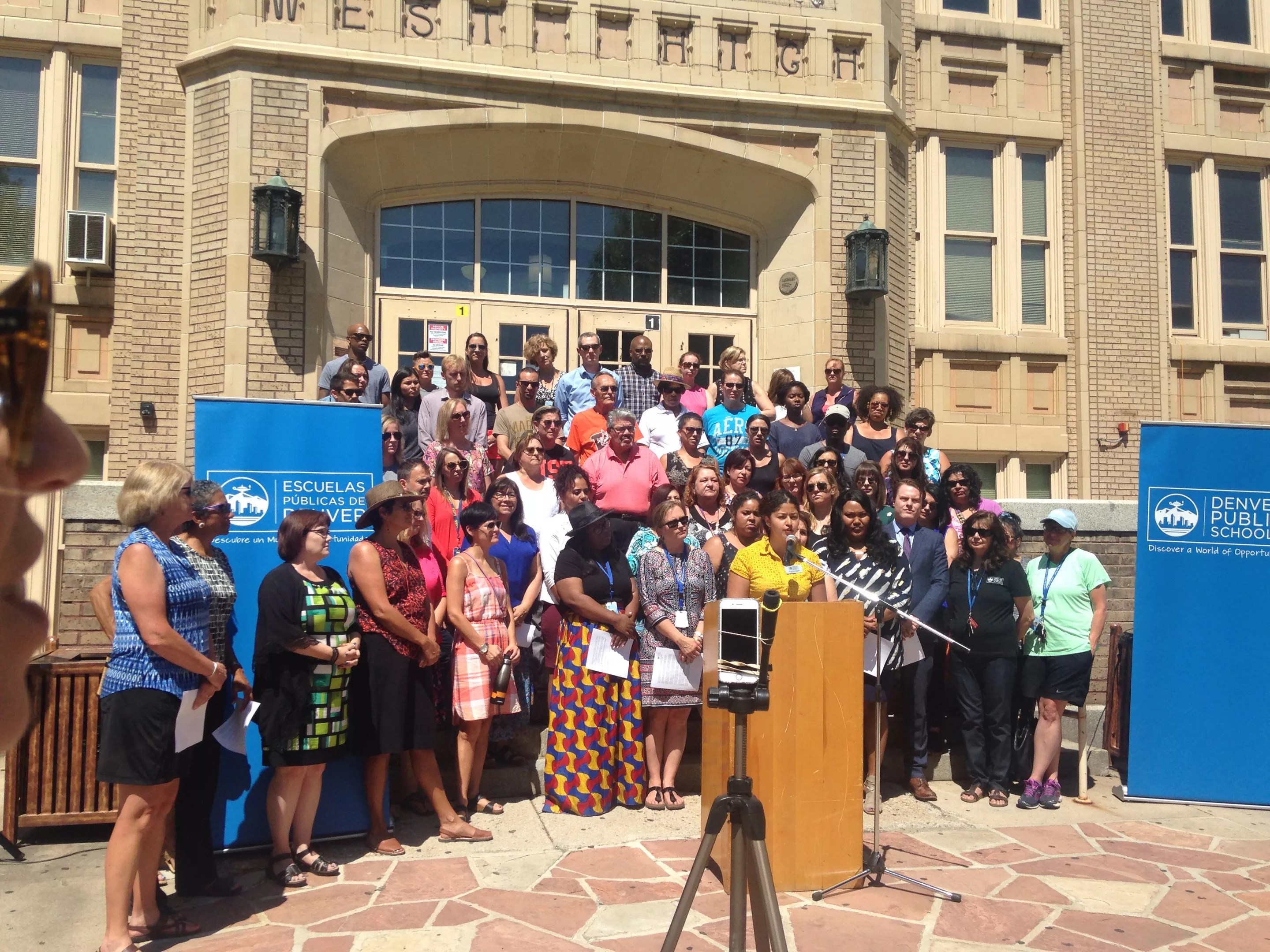
Sara Fleming

Audio By Carbonatix
More than forty Denver Public Schools principals gathered today, June 27, on the front steps of West High School for a rally denouncing the Trump administration policy of family separation at the border and reaffirming DPS’s commitment to ensuring the safety of the district’s undocumented students. At the rally, school board members approved a resolution promising to support students who have experienced trauma as a result of separation from their families. In a letter to the school board, principals also disavowed Secretary of Education Betsy DeVos’s recent comments suggesting that school officials can report students to immigration authorities.
The Supreme Court ruled in 1982 that all children in the U.S. have a right to education regardless of their immigration status, and so Immigrations and Customs Enforcement considers public schools “sensitive locations,” where it is not to carry out certain immigration enforcements, including arrests, interviews or searches. It can, however, request records and documents from employees. According to Angela Cobián, District 2 school board representative, “it is our district’s policy not to disclose any of that information.” If ICE were to request students’ information, Cobián says, teachers and administrators should be trained to refer them to DPS’s legal counsel.
Christian Sawyer, the principal of Hamilton Middle School in southeast Denver, held the rally after he heard concerns from immigrant students, parents and DPS employees about how family separation, as well as other recent policies such as Trump’s travel ban, could affect them. “There’s incredible fear and trauma being experienced by our communities here as this is emerging,” he says. Nearly 37 percent of DPS students are English-language learners, and many of those come from immigrant families.
Cobián explains that while family separation has reignited concerns, immigrant families in Colorado and elsewhere have long been living in fear of deportation and separation. Cobián was a second- and third-grade teacher when Obama was in office, and often taught students whose parents were detained by immigration enforcement. “Even before this current administration, I saw firsthand what that did to my students and their families,” Cobián says. “How can you expect a child to sit criss-cross applesauce or be interested in reading or learning their math facts when they know that their parents are not there at home?”
This year, make your gift count –
Invest in local news that matters.
Our work is funded by readers like you who make voluntary gifts because they value our work and want to see it continue. Make a contribution today to help us reach our $50,000 goal!
And students with uncertain immigration status, as well as those from mixed-status families, experience this kind of stress throughout their educational careers. “We have to think about the generations of students that when they hear that phrase ‘college for everyone,’ it’s not necessarily for them,” she says. Cobián mentioned her cousin, who is an athlete and top student. But she’s undocumented, and her best option for attending college is the Deferred Action for Childhood Arrivals program, if the program remains intact. “Instead of worrying about her quinceañera, she’s worrying about DACA,” Cobián says.
Sawyer says that today’s rally was an important step in reassuring students worried about their parents’ or their own immigration status that their principals and leaders stand with them. DPS has also provided resources about their policies in several languages, and some schools host immigration lawyers who run after-school “Know Your Rights” programs.
“What DPS is experiencing now is what we have been experiencing for years, but on steroids,” Cobián says. “The positive thing is that now it’s in the public discourse. I’m just disappointed that it took hearing the audio of children in detention facilities to awaken that in people.”
Read the full resolution approved by boardmembers here: